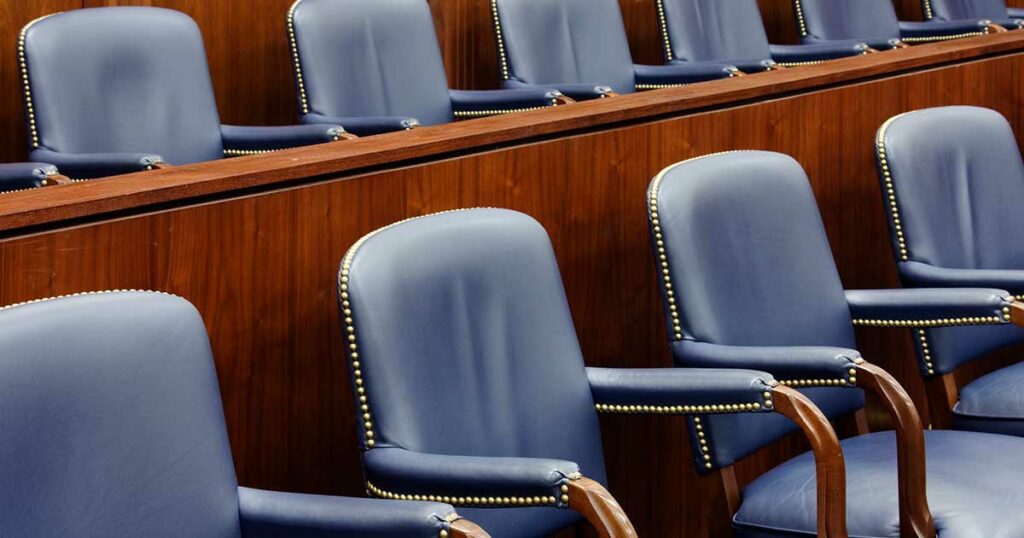As far as disciplinary hearing procedures are concerned, conducting such hearings in absentia, that is, in the absence of the employee who is being charged with misconduct, is the exception to the rule.
In accordance with the principles of natural justice, and more particularly the audi alteram partem-principle (literally meaning “hear the other side”), an employee, being subjected to a disciplinary hearing, has to be given the opportunity to state his/her case regarding the subject matter of the hearing before any decision is arrived at and a pronouncement is made regarding guilt and sanction.
The accused employee being present at the disciplinary proceedings and thus being able to testify in person, constitutes the rule regarding disciplinary proceedings.
Viva voce testimony (that is, live in person) is however not the only way in which an employee can be “heard”, as required by the audi-principle, but it is, arguably, the best way.
There are many reasons why viva voce testimony is preferred, such as:
- Since the employee’s testimony will follow once the employer has stated its case and the employee, being present during such statement of case, not only is able to effectively challenge any evidence brought against him/her during cross examination, but can also present its version of events in direct contrast with the employer’s expressed view.
- The person presiding at the hearing can observe, first-hand, the body language and demeanour of the employee during viva voce testimony and draw important inferences from it, such as indications of remorse or the lack of it, evasiveness, or consistency in case presentation.
There are however instances where viva voce testimony is not possible, which could be because it is intentionally avoided by the employee or made impossible by circumstances.
As mentioned above, viva voce testimony, being the best form of testimony, is the rule in order to ensure fair labour practices. Consequently, the employee, being physically present at his/her disciplinary proceedings, is a requirement of procedural fairness.
Schedule 8 (Code of Good Practice: Dismissal) annexed to the Labour Relations Act (LRA), foresaw that there may be circumstances where an employer may not be able to fully comply with pre-dismissal procedures. Item 4(4) of Schedule 8 provides that, in exceptional circumstances, if the employer cannot reasonably be expected to comply with the procedural guidelines contained in Item 4 (Fair Procedure), the employer may dispense with pre-dismissal procedures. These procedures to be dispensed with could include the requirement to have the employee present at the disciplinary proceedings.
Within context of conducting the hearing in absentia, what would constitute exceptional circumstances?
There is not an abundance of relevant case law that I could find during my research of this blog, but the concept of a hearing in absentia seems to imply, almost exclusively, to circumstances where the employee is unwilling to attend the hearing, thus doing so out of choice.
A distinction should therefore be drawn between, on the one hand, circumstances where the employee wants to partake in the hearing but is prevented to do so by circumstances beyond his/her control (such as illness) and, on the other hand, circumstances where the employee, insubordinately so, elects not to attend the hearing.
In the former circumstances a much more accommodative approach will usually be followed, and the employer will go to considerable lengths to ensure the employee’s participation in the proceedings, other than simply proceeding with it in the employee’s absence.
My focus in this blog is however on the situation where the employee elects not to partake in the disciplinary proceedings in an insubordinate fashion.
The exceptional circumstance which presents itself within this context comes about where the employer duly complied with all pre-hearing procedures, such as:
- Having conducted a proper investigation into the subject matter of the hearing.
- Having presented the employee with a well-formulated charge and have done so in good time.
- Having advised the employee of the particulars of the disciplinary hearing, i.e.:
- Date and time.
- Particulars of the person to preside at the hearing.
- The rights the employee is entitled to including the right (and obligation) to physically attend the proceedings.
Despite due compliance with the abovementioned procedural aspects, the employee then either expressly refuses to attend the hearing and indicates such intention beforehand, or simply does not turn up at the appointed time of the hearing.
This is where the employer is faced with the empty chair scenario.
From the viewpoint of the presiding officer of the hearing, there is a standard way in which the employer should approach this type of situation, bearing in mind that it is assumed that the presiding officer is only formally confronted with the empty chair scenario at the commencement of the proceedings.
The following approach should be followed by the presiding officer:
- Ascertain whether the employee has been properly and timeously informed of the date, time, and venue of the hearing.
- Enquire whether there has been any indication from the side of the employee regarding his/her attendance of the hearing, including, but not limited to:
- Acknowledgement of the notice to attend.
- Indication whether the proceedings will or will not be attended as scheduled and any reasons stated regarding non-attendance.
- Ascertaining whether the employee is represented by someone during the proceedings, albeit in his/her absence and if so, what information is conveyed (if any) by such representative on behalf of the employee.
In the event of detecting any procedural non-compliance in the above regard, make a ruling aimed at ensuring procedural compliance, which could entail postponing the proceedings.
- Consider whether it would be expedient in the circumstances to rather postpone the hearing to a date and time when the attendance of the employee would be more likely. Note – This consideration only applies where the employee mainly has a problem with the timing of the proceedings.
- Request the initiator to contact the employee in order to ascertain whether he/she still persists in not attending the proceedings and depending on the result of this endeavour, make a ruling to either proceed in absentia or to postpone the proceedings.
- If it is decided to proceed with the hearing in absentia, guard against “cutting corners” in respect of procedural and substantive requirements due to the fact that there is no opposition to the employer’s case present. Remain conscious of the “empty chair” and in each and every stage of the proceedings, enquire whether management or HR is aware of the employee’s viewpoint regarding the matter in question, where the employee’s viewpoint is not otherwise known.

The need for relevant information from the “empty chair” is more pertinently applicable in case of substantive fairness requirements, namely the employee’s viewpoints regarding:
- The existence of the rule concerned in the workplace.
- The awareness of the rule concerned.
- The legitimacy of the rule concerned
- The breach of the rule concerned
- The fair application of the rule concerned:
- The existence or not of a legitimate defence.
- The consistency of the application of the rule in the workplace.
- Any mitigating or extenuating circumstances which could affect the sanction to be imposed in case of a guilty finding.
- Consider guilt/innocence, as well as sanction with due cognisance to the totality of information reasonably brought to your attention, in as a balanced evaluation as is possible in the circumstances.
In closing, insubordinate failure to attend disciplinary proceedings duly scheduled by the employer, has to have consequences for the employee, other than having forfeited the opportunity to state his/her case in the proceedings.
To this end, the insubordinate non-attendance can be argued as an aggravating factor by the initiator (or be considered by the presiding officer as an aggravating factor which emanated from the proceedings, even if not argued as such). Alternatively, when the insubordinate non-attendance was confirmed by the employee when notified of the hearing date, time and venue, such insubordination can be added to the charges brought against the employee, provided that the necessary preparation time be allowed in this regard.
The employee also remains entitled to a reasoned finding in respect of guilt/innocence and sanction and still retains his/her right of review or appeal where such internal process is provided for in policy.

